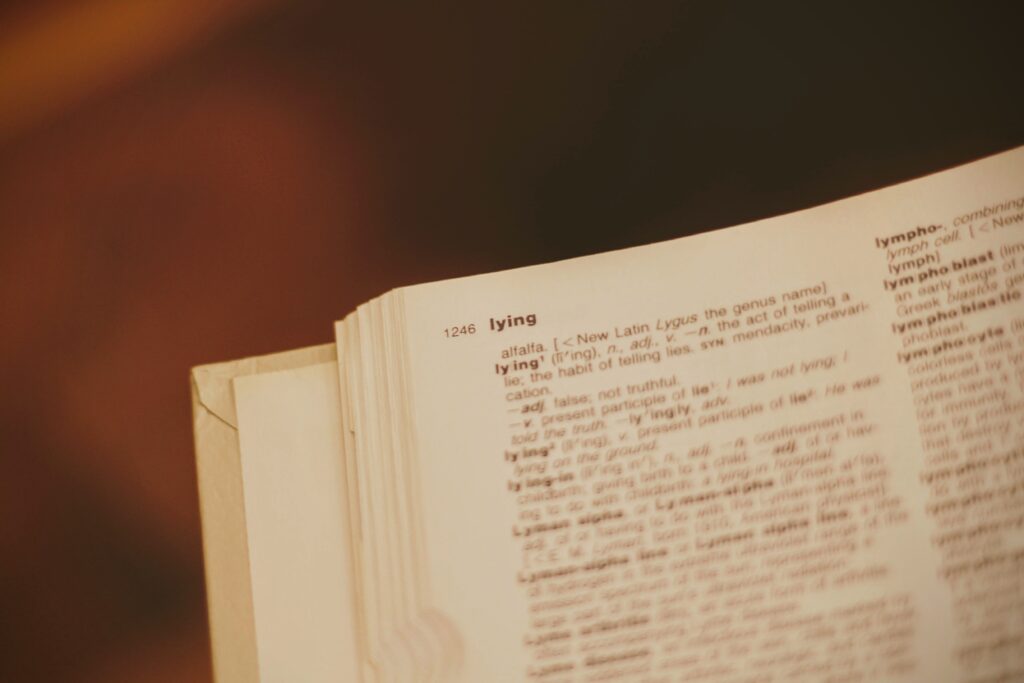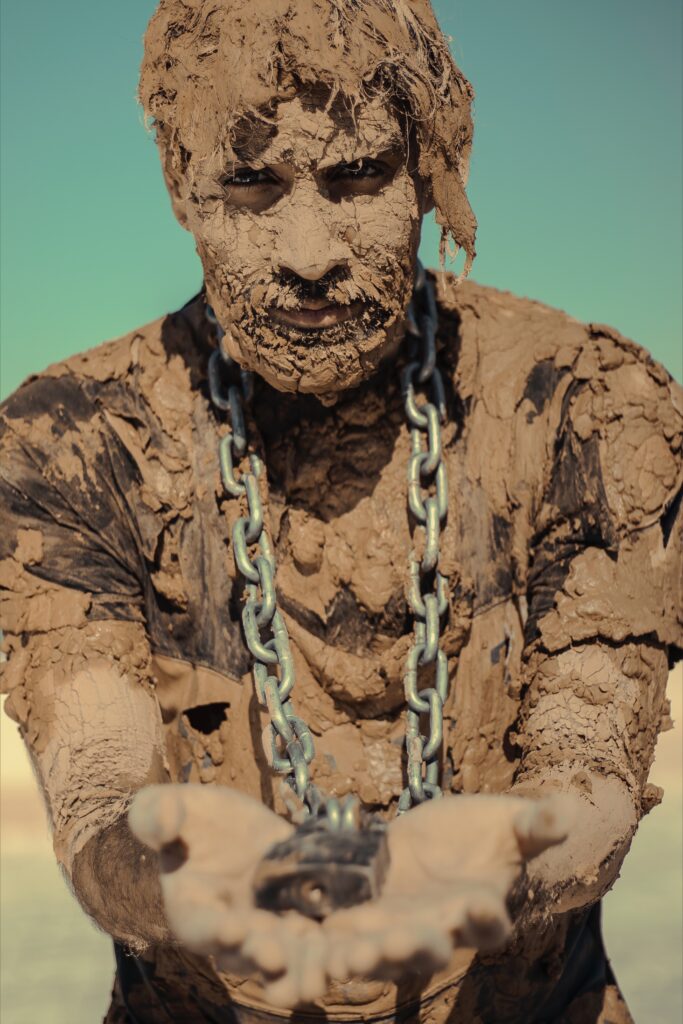¿Está Seguro de que Está Haciendo Brillar la Luz de Cristo en este Mundo?
Aprenda a Vivir Sin Reproches Porque Esto Puede Aumentar Significativamente Su Confianza Aun en Medio de las Pruebas

¿Alguna vez se ha detenido a escuchar a los niños mientras hablan entre sí cuando piensan que ningún adulto los está escuchando? Hace poco escuché una discusión entre dos niños que no se dieron cuenta de que yo estaba cerca de ellos. El niño tiene unos 13 años y le estaba explicando a su hermana de 11 años la diferencia entre engañar y desobedecer. Al parecer, su hermana lo había sorprendido haciendo algo que sabía que no estaba permitido hacer. Y de alguna manera, él estaba tratando de convencerla de que no estaba siendo desobediente. Sólo estaba engañando un poco al no decirle a nadie lo que estaba haciendo, lo cual era diferente y no tan malo como desobedecer.
Me recordé de cuando era maestra, hace muchos años, y me daba cuenta cómo muchos alumnos de secundaria y bachillerato justificaban ciertos engaños. Por ejemplo, no les parecía mal el copiar en tareas y exámenes. Y decir "mentiras piadosas" estaba bien siempre y cuando nadie saliera herido. Parece que este niño de 13 años al que escuché intentaba impartir la misma "sabiduría" a su hermana menor. Tengo que admitir que al escuchar esta discusión, tuve que aprovechar la oportunidad para explicarle a los dos niños lo importante que es vivir sin reproches y los beneficios de hacerlo. Podemos tener la confianza que haremos brillar una luz para Cristo ante el mundo al vivir sin reproches, aun en medio de las pruebas.
Vivir Sin Reproches
El apóstol Pablo enseñó a la congregación de la iglesia de Filipos cómo debían vivir como cristianos. Debemos ser irreprochables e inocentes al hacer todas las cosas sin quejas ni disputas y debemos aferrarnos firmemente a la Palabra de Dios (Filipenses 2:14-16).
Pablo también enseñó a Tito, un joven pastor, a enseñar a su congregación cómo vivir una vida cristiana. Él debía hacerlo con lo que hablaba y la forma en que vivía para ser un ejemplo ante ellos (Tito 2:1, 7). Pablo explica que si vivimos de acuerdo con las instrucciones proporcionadas en Tito 2:2-6, mostrando integridad, reverencia, incorruptibilidad, y empleamos un discurso sano que no pueda ser condenado, en el momento en que un oponente hable contra nosotros, ese oponente será avergonzado. Tito 2:1-8 puede resumirse en dos sencillas instrucciones: Que el fruto del Espíritu sea evidente en nuestra vida; y enseñar a los que vienen después de nosotros a transmitir las verdades de Dios a nuestra familia con amor y paciencia.
Básicamente, estas dos escrituras (Filipenses 2:14-16 y Tito 2:1-8) pueden resumirse diciendo que, como cristianos, debemos vivir sin reproches.
Think about what “above reproach” means to you. The King James Version often uses the term “blameless.” To live blamelessly is to live above reproach.
Quizá sea más fácil describir una vida sin reproches si se describen las consecuencias. Siempre les enseñé a mis hijos que si viven sin reproches, viviendo de una manera que ni siquiera se acerca a las cosas que son consideradas malas o impías, entonces, si alguien los acusara de algo malo o impío, los demás se sorprenderían y no lo creerían.
Por ejemplo, si nunca ha mentido o siquiera ha permitido percepciones incorrectas de ciertas cosas al guardar silencio, entonces, si alguien le acusa de mentir, es probable que nadie crea tal acusación.
Let’s look at a couple of examples in scripture to see if this holds true.
Jacob
In Genesis 31:26-30 we read about Jacob, after he had worked for Laban many years, secretly fled. Remember that Jacob’s name means “deceiver.” Also, he went to Laban’s house because he was fleeing from his brother Esau. Jacob had deceived Esau twice. First, he traded a bowl of stew for Esau’s birthright. Then he disguised himself as Esau in order steal his blessing from their father Isaac.
En Génesis 31 leemos sobre Jacob después de haber trabajado para Labán durante 20 años. Trabajó durante 7 años por la hija de Labán, Raquel, pero Labán le dio a Lea en su lugar. Por lo tanto, trabajó otros 7 años por Raquel y continuó después hasta haber trabajado allí durante 20 años.

While still at Laban’s house, Jacob had overheard Laban’s sons accusing Jacob of deceitfully taking away some of Laban’s property (the speckled sheep) and Jacob noticed that Laban’s attitude toward Jacob had changed. So, he fled to return to the Land of Canaan. Laban went after Jacob and accused him of stealing away with Laban’s daughters, grandchildren, and his gods.
¿Vivió Jacob una vida sin reproches?
No. Engañó a su hermano y todavía se le consideraba como alguien engañoso. Por eso, cuando los dioses de Labán se perdieron, Labán pensó automáticamente que Jacob se los había llevado.
Jacob no los había tomado. Tal vez usted recuerda que fue Raquel quien los tomó. Pero como él no llevaba una vida sin reproches, automáticamente se sospechaba que había hecho algo malo al desaparecer algo.
Este es un ejemplo de lo opuesto a mi teoría de vivir sin reproches. Demuestra que si no se vive sin reproches, lo más probable es que se sospeche de usted y se le acuse de haber hecho algo malo, aunque no lo haya hecho.
José
Si continuamos leyendo en Génesis, encontramos la historia de José. José vivió una vida sin reproches. Incluso si revisamos toda su historia, desde que vivía todavía en la casa de su padre, el único defecto que encontraríamos en él es que pudo haber tenido un poco de orgullo cuando recibió la túnica de colores de su padre y cuando tuvo sueños en los que sus hermanos se postraban ante él.
En Génesis 39, descubrimos que José había ascendido a un puesto de autoridad en la casa de Potifar. Al parecer, la esposa de Potifar se sentía muy atraída por José e intentó seducirlo. Pero José, sabiamente, huyó de ella. Desafortunadamente, dejó atrás su ropa (Génesis 39:7-12).
La esposa de Potifar acusó falsamente a José de haber intentado seducirla. Si mi teoría es correcta, Potifar no le habría creído a su esposa porque José había vivido sin reproches. Potifar debió haber dudado de lo que decía su esposa cuando acusó a José de cosas tan horribles. Pero eso no fue lo que ocurrió. En cambio, Potifar se enfadó y José fue encarcelado.
What? That wasn’t supposed to happen. Joseph lived above reproach.
Pruebas
Bueno, no creo que la experiencia de José refute mi teoría. Mi teoría sigue siendo válida hasta que Dios intervenga y tenga un propósito mayor en mente. Todavía podemos beneficiarnos de vivir sin reproches. Al hacerlo, descubrimos que rara vez se nos acusa de algo cuando las cosas salen mal. Y si somos acusados falsamente, generalmente vemos que los demás se precipitan a creernos a nosotros en lugar de al acusador.
In Joseph’s situation, as with us sometimes, God allowed a trial in his life.

Dios permite que las pruebas en nuestra vida cambien, se desarrollen y tengan un impacto en nuestro carácter. Al final, Dios utiliza las pruebas para moldearnos a Su imagen; nos hacemos más semejantes a Cristo. Dios también utiliza las pruebas para prepararnos para las tareas que nos pedirá en el futuro. El apóstol Pedro explicó que las pruebas no son algo extraño para los cristianos y que debemos alegrarnos en ellas porque, al final, se revelará la gloria de Dios y seremos bendecidos (1 Pedro 4:13-14).
Cuando José estaba en la cárcel interpretó los sueños de un par de oficiales del faraón (el jefe de los coperos y el jefe de los panaderos). Debido a que tuvo la oportunidad de interpretar esos sueños y que las interpretaciones se hicieron realidad, José fue llamado a interpretar uno de los sueños del faraón. Luego, el faraón puso a José a cargo de toda la tierra de Egipto, siendo el segundo después del propio faraón. Gracias a esta posición, José pudo salvar a su familia cuando hubo una grave hambruna.
Thinking back on Joseph’s life, although it was hard, with many trials that Joseph didn’t understand, when he saved his family during the famine, God’s glory was revealed and the entire family, which became the nation of Israel, was glad with exceeding joy.
Consecuencias
Cuando vivimos nuestra vida sin reproches, estamos llevando el nombre de Cristo. Si se nos reprocha, es decir, si sufrimos alguna vergüenza, deshonra o algo que nos provoque una reprimenda o censura, aunque sea falsa, debemos contemplar la prueba y orar para que Dios nos muestre para qué nos está preparando. Aunque Él no nos lo revele, tal como a José nunca se le dijo lo que Dios estaba haciendo en su vida, debemos recordar cómo Dios trabajó en la vida de José y confiar en que Él nos está preparando para Su propósito.
Regresando a las escrituras con las que iniciamos (Filipenses 2:14-15 y Tito 2:7-8), hay tres consecuencias de vivir una vida sin reproches:
- Seremos la luz en el mundo;
- La Palabra de Dios no será blasfemada/profanada a consecuencia de nuestra vida; y
- Nuestros adversarios en el mundo no tendrán nada malo que decir sobre nosotros.
Aunque una de las consecuencias de una vida sin reproches es que nuestros adversarios no tendrán nada malo que decir acerca de nosotros, pero como hemos visto en el caso de José, aún pueden hacer falsas acusaciones. Sin embargo cuando eso sucede, podemos permanecer sin reproches confiando en Dios, siendo fieles a Su Palabra, y esperando ansiosamente que se revele Su gloria.
Le animo a que analice su propia vida y determine si está viviendo sin reproche. Pídale a Dios que le muestre cualquier cosa en su vida que necesite ser corregida. Ore como lo hizo el rey David en Salmos 139:23-24: “Examíname, oh Dios, y conoce mi corazón; Pruébame y conoce mis pensamientos; Y ve si hay en mí camino de perversidad, Y guíame en el camino eterno”. Puede tener la confianza de que está haciendo brillar una luz en el mundo para Cristo cuando vive sin reproche, incluso en medio de las pruebas.


